40 Ways Your Body Changes After 40

Yes, your 40s are your best decade. You’ll find that you’re wiser and you’re more established—and, if you’re doing things right, you should find that you’re far happier when you’re both of those things. But that doesn’t mean that your body isn’t about to undergo some… let’s call them interesting changes now that you’re 40.
Now, whether those body changes are for better or for worse is really a matter of perspective. What’s more, you’re more than capable of lessening any adverse effects that these body changes after 40 may have on your life. (Trust us.) So consider this list that heads up: here’s what to expect from your body now that you’re in your 40s.
1
Your wrinkles become more pronounced.
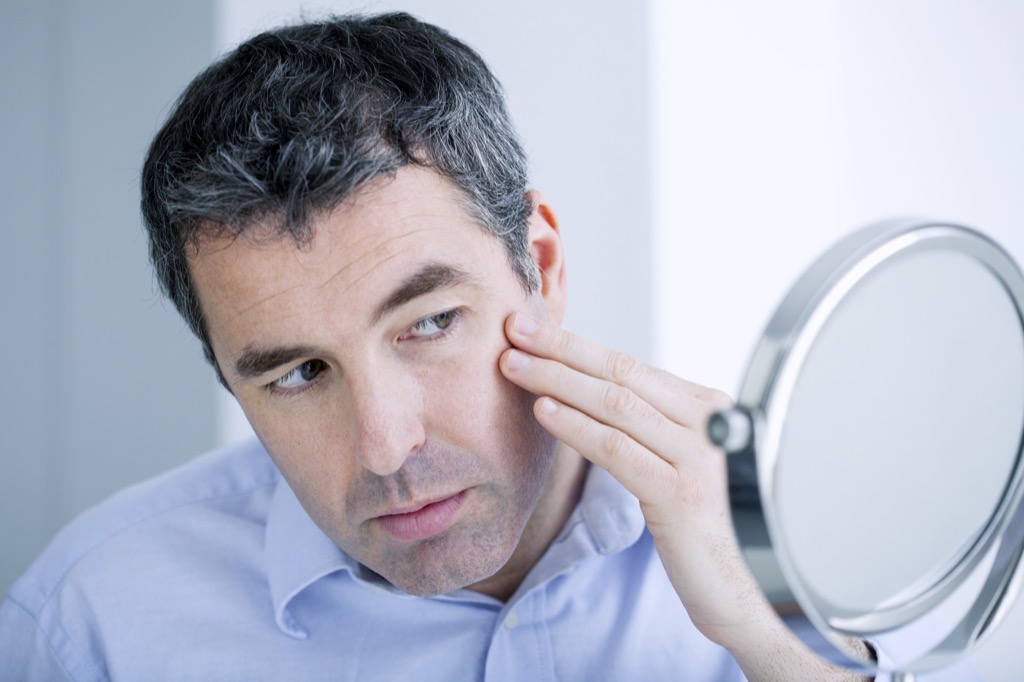
As we age, our skin gets thinner, drier, less elastic and less able to regenerate after sustaining damage. By the time we hit forty, this aging plus wear and tear leads to wrinkles, creases, and lines on the skin. All that sounds like bad news until you consider the results of one study published in the journal PLOS One that found that when crow’s feet were present, smiles were thought to be more authentic, intense, spontaneous, and the crow’s feet owners assumed to be intelligent and more attractive slightly more dominant. If you’re not swayed by that, you can forestall wrinkles by using a moisturizer at night, staying adequately hydrated and protecting your skin from UV rays with an SPF. Fore more on that, here’s a compendium of 20 Easy Ways to Look A Decade Younger.
2
Hair starts to grow in weird places.

To the best of our knowledge, there’s no study that has demonstrated a connection between ear, nose, back, or chin hair and perceived attractiveness. The fact remains however that both men and women will be more prone to sporting conspicuous hairs where there previously hadn’t been any, often at around the age of 40.
Not into these incongruous sproutings? Take heart that many grooming clippers for men come with attachments for ear and nose hair, while a slew of new long-handled back shavers have recently hit the market. Tweezing is often your best bet for an errant chin hair though if there’s more than a few, laser hair removal is something women are increasingly turning to.
3
You experience more aches and pains.

Wear and tear on the body is, by definition, cumulative. Knowing your limits, maintaining a healthy weight, exercising, stretching, meditating, and seeing your doctor when something doesn’t feel right are all part of a prescription for lessening some of the indignities of turning 40. You’ll find that stress might be making those aches and pains worse, so be sure to take a look at 30 Easy Ways to Fight Stress.
4
Your hangovers become more intense.
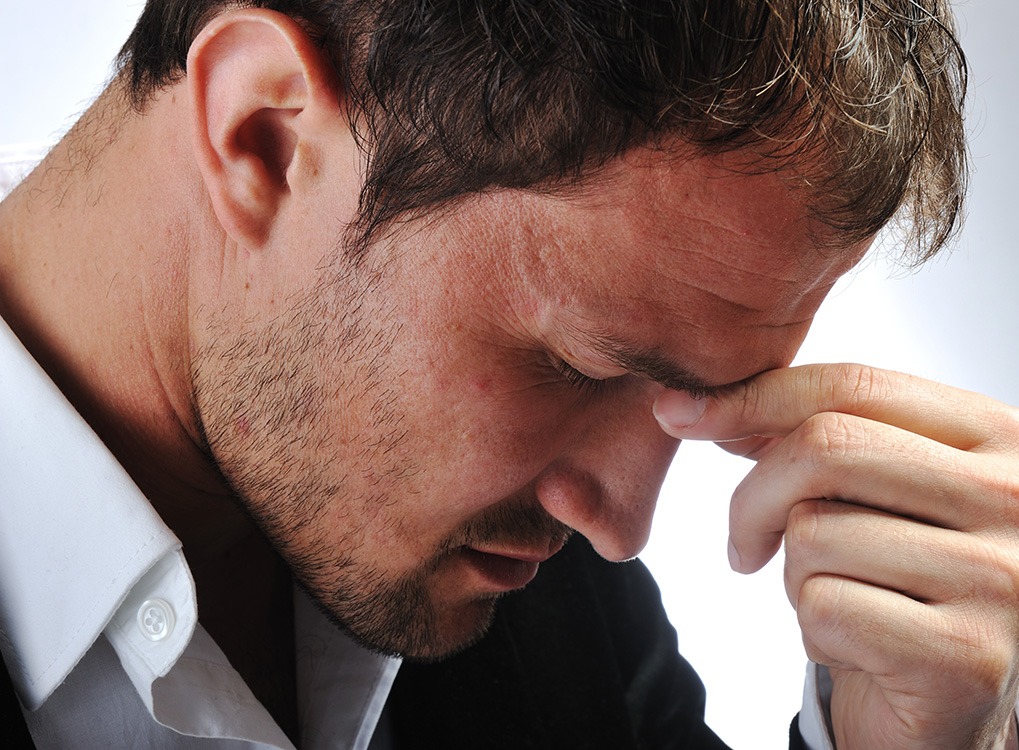
Talking to The Wall Street Journal, David W. Oslin, a professor of psychiatry at the Perelman School of Medicine at the University of Pennsylvania, said that all of the effects of alcohol are amplified with age.
This is due in part to the liver becoming less efficient as we age and also because people with a higher percentage of body fat and less body water tend to feel the effects of alcohol more strongly than those with greater muscle mass. Limiting your alcohol consumption and drinking a glass of water between every alcoholic drink are good ways of ensuring that you won’t be in such a sorry state the day after a night out.
5
Your teeth become less sensitive.
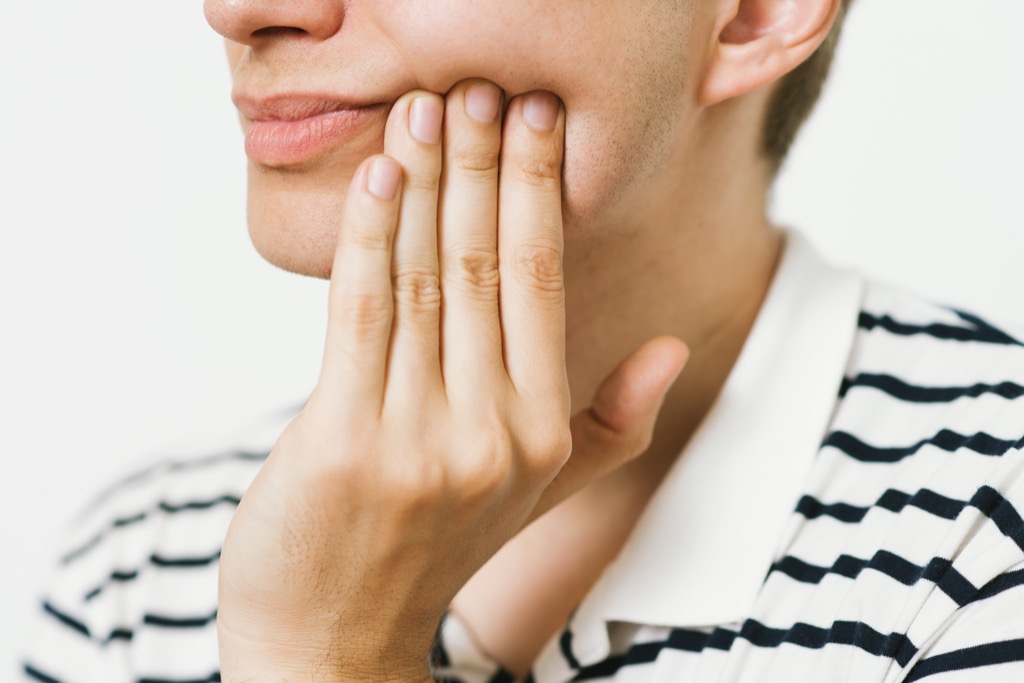
Some good news, if sensitive teeth have been an issue for you in your teens, 20s, or 30s. As you age, more dentin—the inner hard tissue—forms between your teeth enamel and nerves. This extra insulation results in diminished pain response. The bad thing about that is that you’re less likely to feel when something goes wrong with your teeth meaning that regular check ups become that much more important as you hit the big four-oh. Speaking of: a sweet tooth might be a lifelong vice, but its certainly one of the 34 Bad Habits Everyone Should Stop By Age 40.
6
It takes you longer to recover from an injury.

Scientists aren’t yet certain why at 40 it takes longer to bounce back from injury than it once did. Some posit that it’s something called cell exhaustion, others maintain that less hormonal changes makes muscle repair take much longer, while some argue that as we age, our body’s inflammatory response to injury is elevated. It could of course be a cocktail of all three. When you sustain an injury, anticipate devoting more time to rest and recovery than you have in the past.
7
Your prostate grows.

For guys, turning 40 means that your annual physical now incorporates a prostate exam. Your doctor is checking for signs of prostate cancer which can often be signaled by an enlarged prostate. The thing is, men’s prostates start slowly growing at around age 25. It’s called benign prostatic hyperplasia (BPH) and has nothing to do with cancer (your doctor will know the difference). Symptoms associated with BPH include: trouble starting to urinate; straining or pushing when you pee; a weak stream; a stopping and and starting flow, and dribbling. If you note any of these symptoms, make an appointment and talk to your doctor.
8
You catch fewer colds.
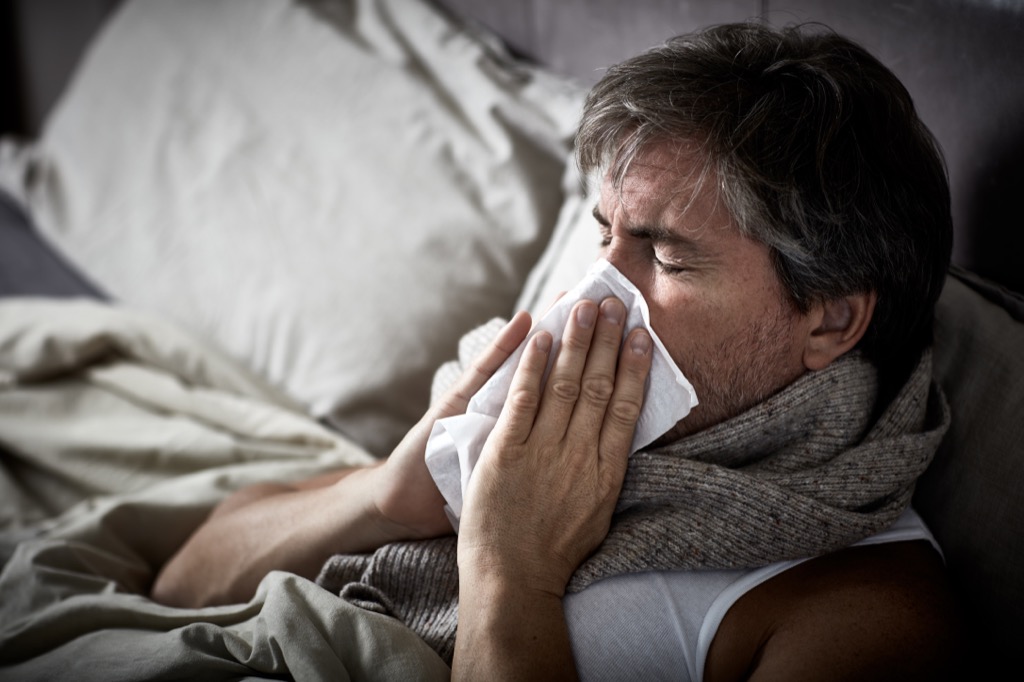
By the time we hit 40, we’ve been exposed to more cold viruses and developed immunities and therefore get sick less often.
9
Hair loss becomes noticeable for men.
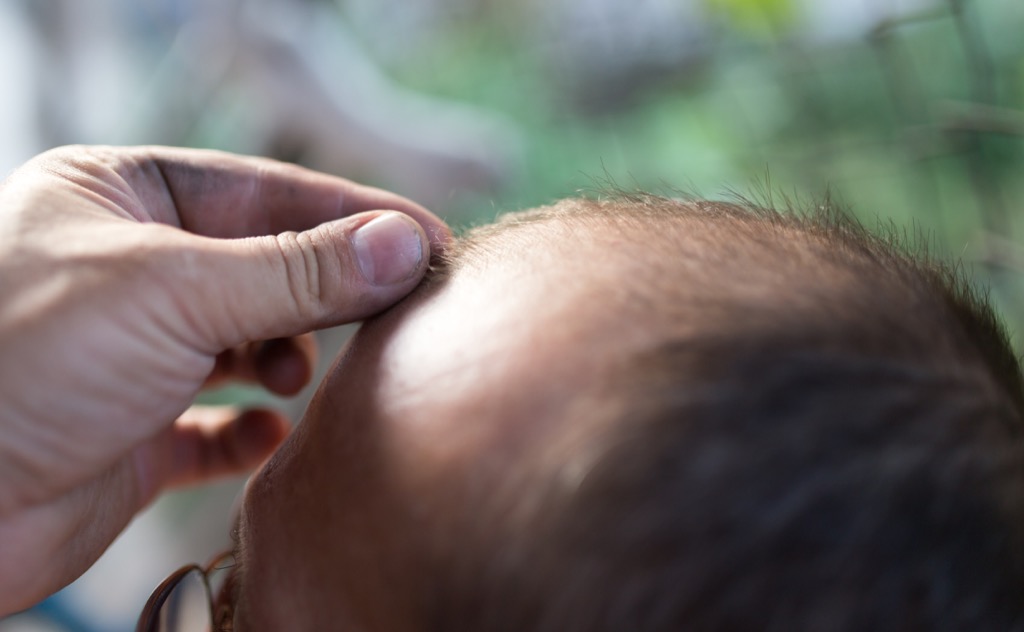
According to research published in Dermologic Surgery, the proportion of men with moderate to extensive hair loss skyrockets for men in their forties. The study found that while significant hair loss affects 16 percent of men 18-29, more than half (53 percent) of men between the ages of 40-49 will be looking threadbare up top. There are an increasing amount of interventions that men can make to slow or stop their hair loss, and some pretty effective ways to replant their crowning glory, too. Before you throw money at your increasingly exposed dome, consider a study that found that bald are perceived as being more socially mature, intelligent, educated, and honest compared with men who have a full head of hair.
10
…and women.

Many women also experience noticeable hair loss at they reach 40. An Australian study found that 64.4 percent of women living in the town of Maryborough had bitemporal hair loss. One (possible) silver lining is that age related-hair loss in women tends to occur everywhere in the body meaning less leg, armpit, and pubic hair, too.
11
You sleep less.
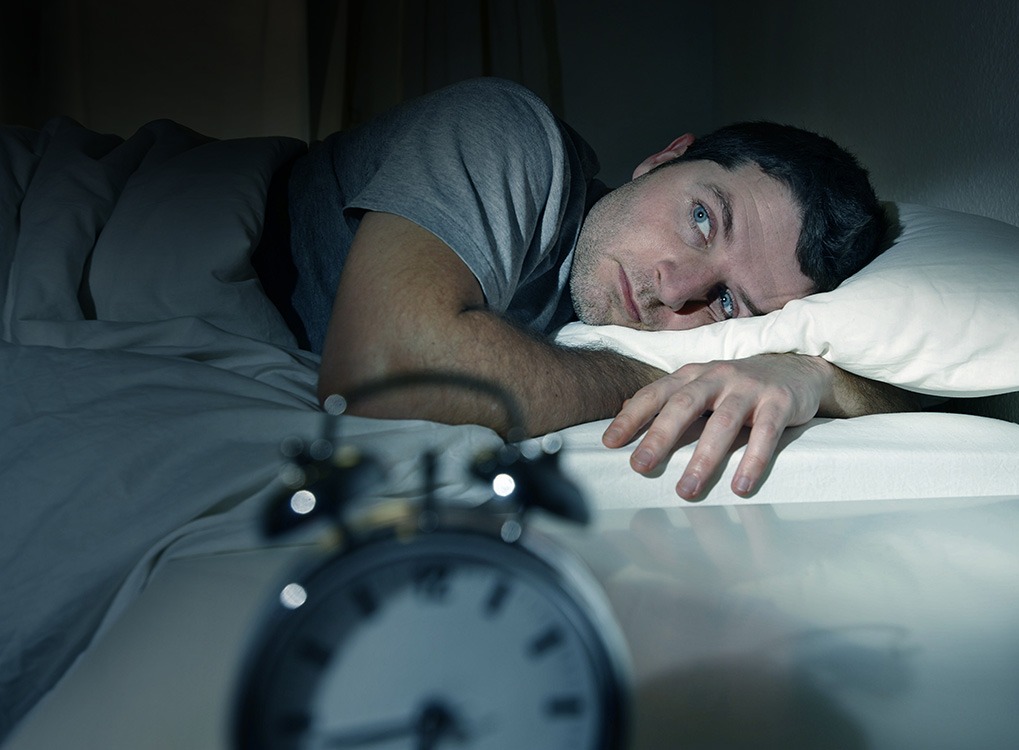
In a study published in the journal Sleep of 110 healthy adults who were allowed eight hours of bedtime, the middle-agers (ages 40 to 55), were found to sleep around 23 minutes less than the youngest group (ages 20 to 30). A simple explanation is that people need less sleep as they age, but the National Sleep Foundation refutes that. On their website they write: “It is a common misconception that sleep needs decline with age. In fact, research demonstrates that our sleep needs remain constant throughout adulthood.”
12
It’s harder for you to lose weight.
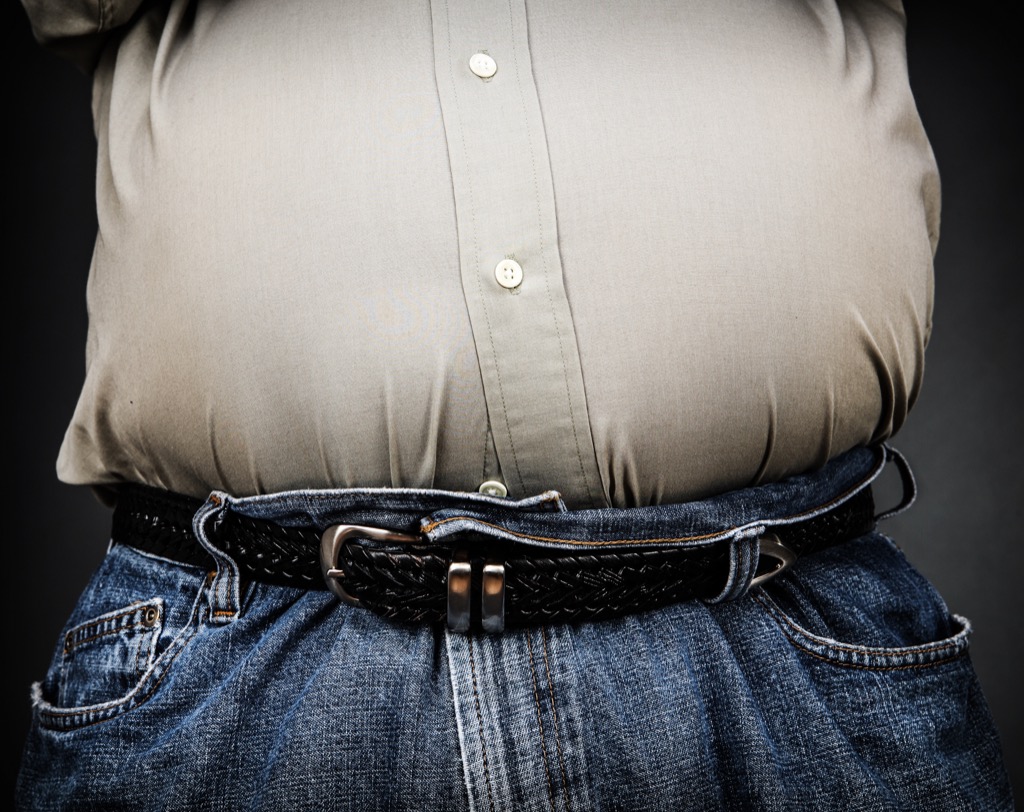
You may remember a time in which getting back into your best shape required nothing more than cutting out bread and sweets for 72 hours. For many of us, slimming down in a hurry gets to be a much tougher prospect when we reach 40, and you probably already know that the cause is a slowing metabolism.
What many of us forget, however, is that a huge part of having a slower metabolism is a direct consequence of decreased muscle mass. Muscles need fuel—meaning that the more muscle you have, the more calories you’ll burn at rest. Put on one pound of muscle, and you’ll re-stoke your furnace and burn an extra 50 calories per day. That math scales up meaning that by putting on 10 pounds of muscle, with regular resistance training and plenty of high quality protein, your body could burn a whopping 3,500 extra calories per week while idling.
13
You become aware of being shorter.
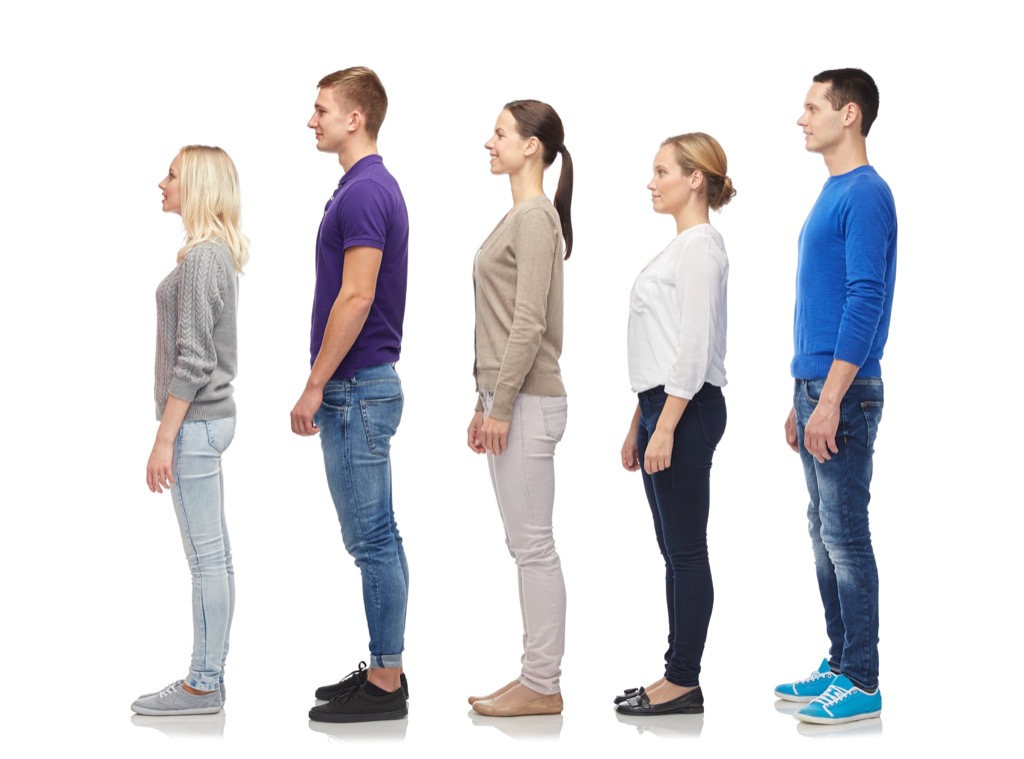
People can begin to shrink in height as early as their thirties meaning that, by 40, you may begin to notice it. According to the University of Arkansas for Medical Science (UAMS), men can gradually lose an inch between the ages of 30 to 70, while women can lose about two inches.
Resistance training can help slow shrinkage while eating foods rich in calcium and vitamin D can also help by keeping your bones strong. A UCLA pilot study published in the American Journal of Public Health showed that yoga could improve kyphosis, a forward curve of the spine originally believed to be an irreversible bone disorder. Researchers found that study participants who did yoga had straighter spines and their height measurements had increased.
14
You’ll have more grey in your hair.
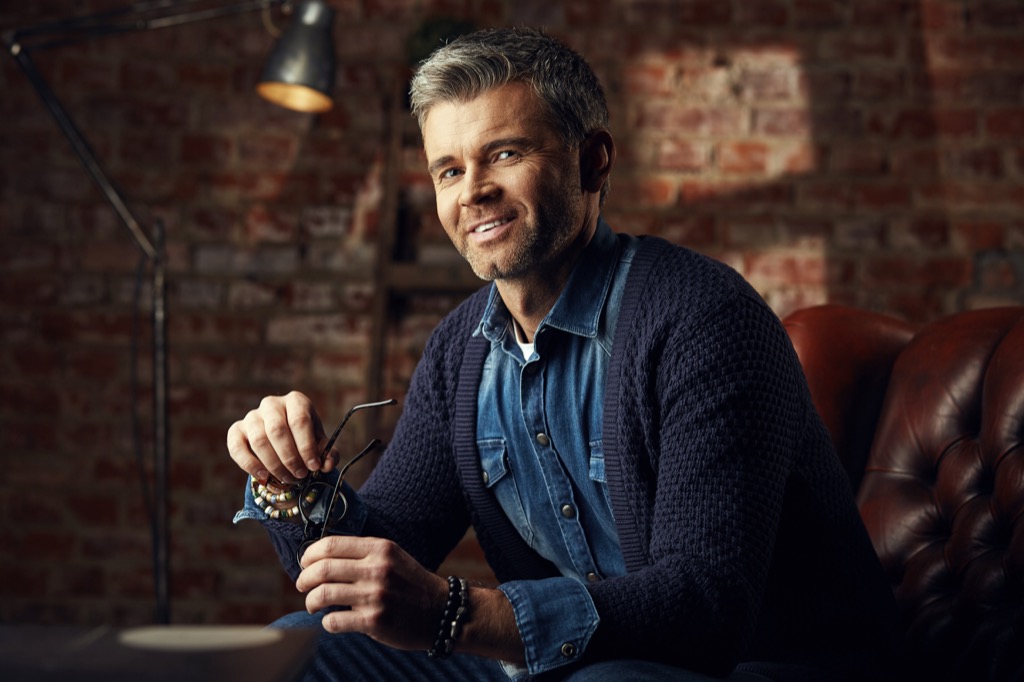
As we age the pigment cells in our hair follicles gradually die. What that means is that a hair follicle is not actually changing color but becoming transparent. Typically, caucasians begin going gray in their mid-30s, Asians in their late 30s, and African-Americans in their mid-40s. For guys, there’s a literal silver lining. According to a Match.com survey, 72 percent of women say that they find guys with grey, silver, or “salt and pepper” hair hot.
15
Your sense of smell and taste change.

When we’re born we have approximately 9,000 taste buds. But as we age, the number of taste buds decreases. What this means is that your sensitivity to the main tastes (sweet, sour, bitter, salty and umami) gradually declines. Bad news, ladies: this typically happens to women 10-20 years earlier than men. A loss of smell and taste is diagnosed by getting a patient to compare smells or tastes. From this, your doctor can determine the level of loss.
16
Your menstrual cycle gets wacky.

On average, menopause begins at around 51 years of age but many women may begin seeing changes to your cycle much earlier than that. We’re talking irregular periods, skipped periods, increased cramps, mood changes, migraines. This phase is called perimenopause. It can last anywhere between 4 and 10 years and and it’s the body’s way of transitioning into menopause. Regular exercise has been shown to help with migraines, anticipating mood swings can be very helpful in dealing with them but you should always talk with your doctor about any other perimenopausal factors that are affecting your quality of life.
17
You experience vaginal dryness.
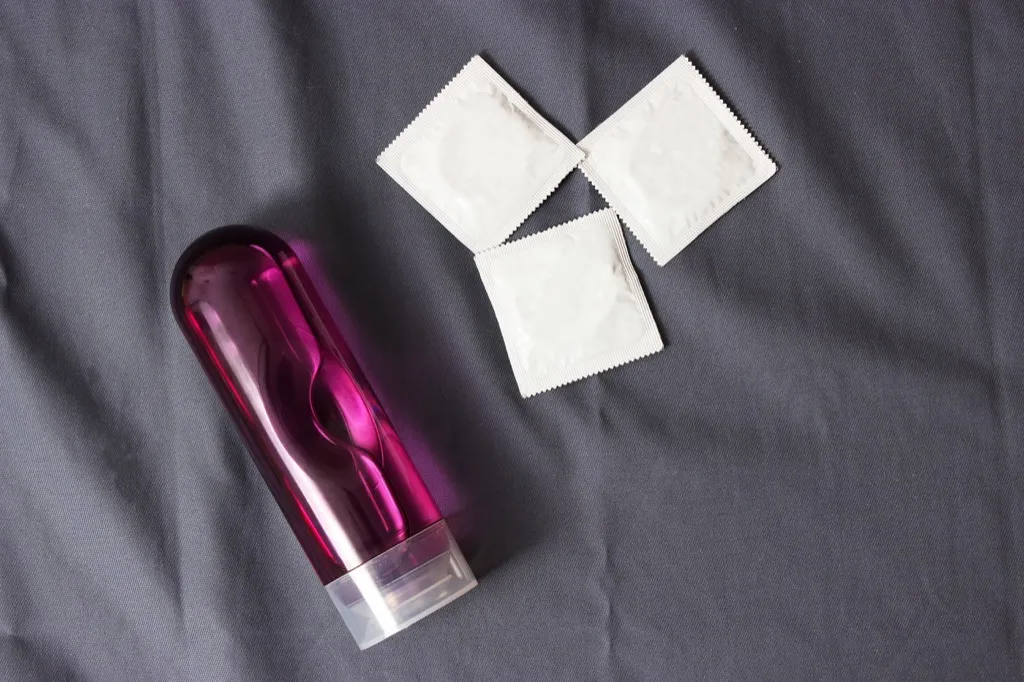
One of the consequences of perimenopause is vaginal dryness which is due to lower levels of estrogen in the body. Along with discussing the issue with you doctor, you may find that simply incorporating more lubricant into sexy time is a way to treat the problem.
18
Tooth decay increases.
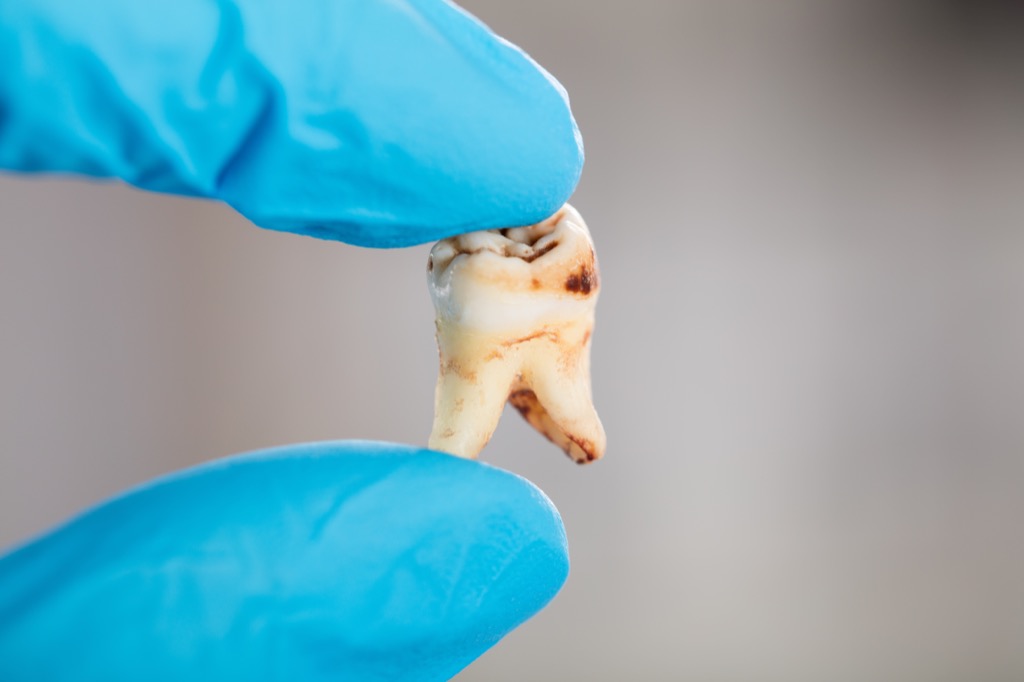
As you get older, your mouth gets drier. Saliva helps clean teeth and protects your mouth from decay meaning that by 40, your odds of tooth decay go up. Fight back by drinking more water, holding it in your mouth for a few seconds before you swallow. You can also suck on sugarless candy or chew sugarless gum to increase the amount of saliva in your mouth.
19
Your penis appears smaller.
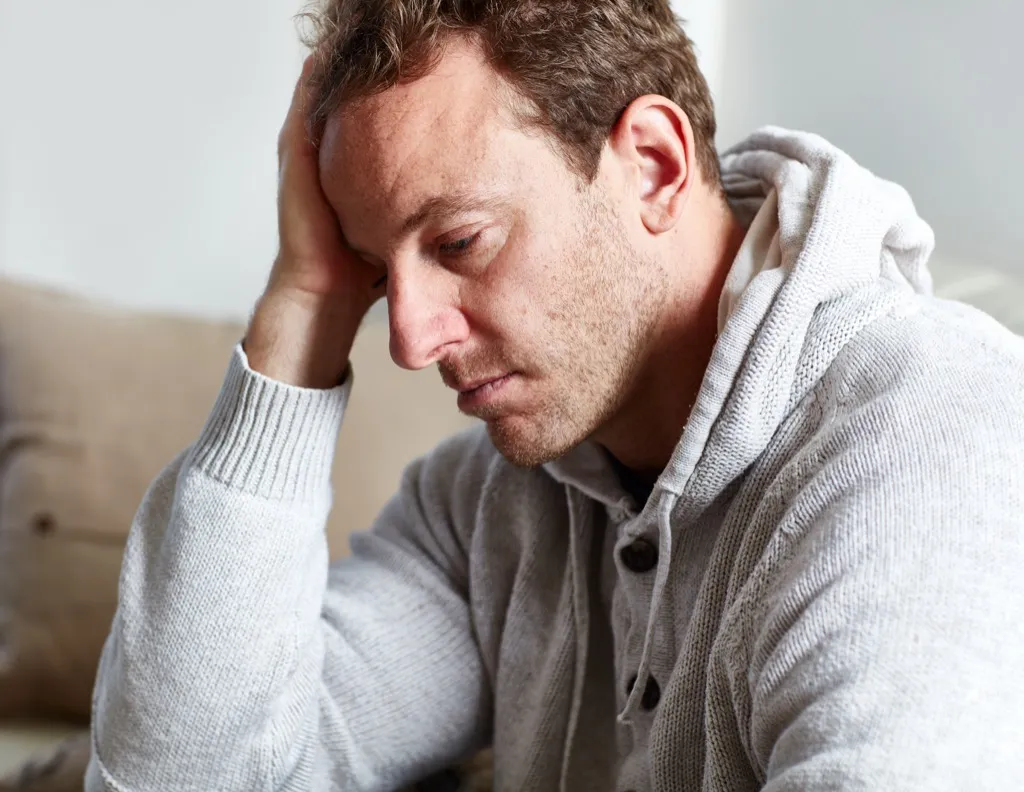
How’s this for an inconvenient truth: the penis actually shrinks over time. It’s a result of decreased blood flow and testosterone. By the time a guy is 70, he may have lost around half an inch in length. At 40 however, chances are that your penis has not actually decreased in size to a degree that’s noticeable. But if like many men, your body fat percentage has crept up, your penis may appear shorter due to an increase in fat near the base of the penis—the mons pubis. Dropping some pounds may help you recover some of that fat-ensconced glory and a healthier circulatory system will help transport more blood to your organ.
20
Erections are not what they were.

After age 40, you’ll find that erections are fewer and far between. What’s more, your refractory periods—the time in-between ejaculating and being able to achieve another erection—may be longer. Your response to all this should be two-pronged: make healthier choices and emphasize quality over the quantity of sex you’re having.
21
Your chances of getting breast cancer increases.
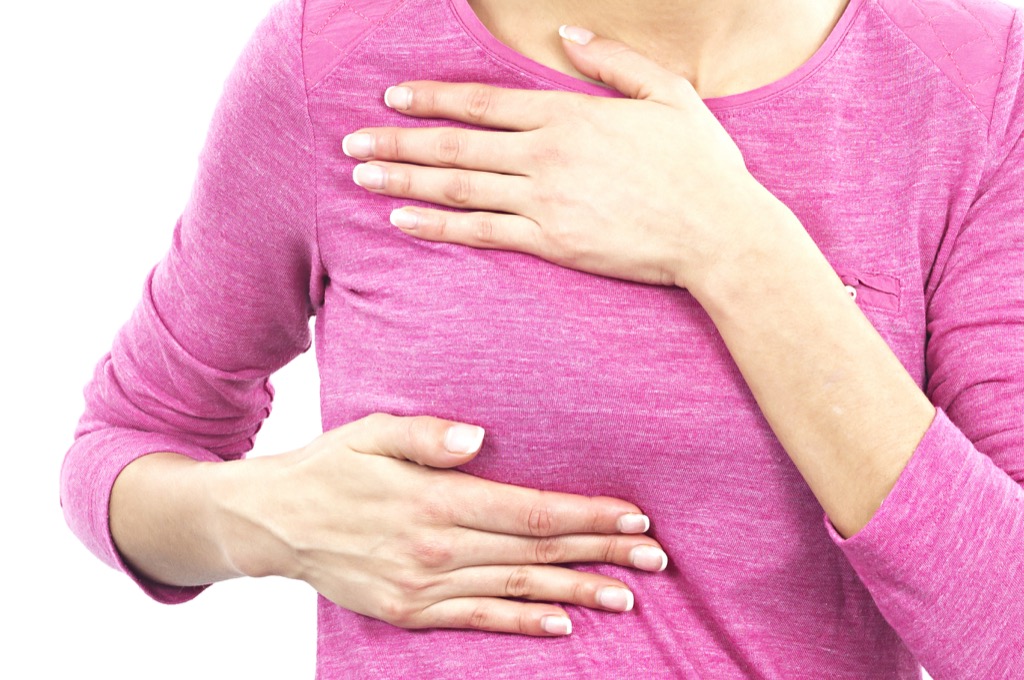
In her 30s, a woman’s chances of getting a breast cancer diagnosis are 1 in 228. Between the ages of 40 and 49, however, that leaps to 1 in 69. Its no wonder then that the American Cancer Society and The Mayo Clinic recommend you get a baseline mammogram at age 40. Regular exercise has been shown to reduce breast cancer risk by 10-20%, a healthy diet with plenty of fruits and vegetables—especially carotenoids—have also been shown to help as had reducing alcohol consumption. Studies have shown that findings show women who drink 2-3 alcoholic beverages per day have a 20 percent higher risk of breast cancer than non-drinkers. But for all of the ways to combat it, here are 40 Ways to Prevent Breast Cancer After 40.
22
Your bone density decreases.

As we age, we lose bone density, though women are more significantly affected by it. In part, this is due to the fact that women start off with a lower bone density than their male counterparts and lose density at a faster rate—around 1% per year beyond age 35. Resistance training can help stave off bone loss, as can a daily 1500mg calcium supplement and an adequate vitamin D (think salmon, egg yolks, and sunshine). A 2011 study showed the overall prevalence rate of vitamin D deficiency in the U.S. was a staggering 41.6%!
23
Digestive issues materialize.
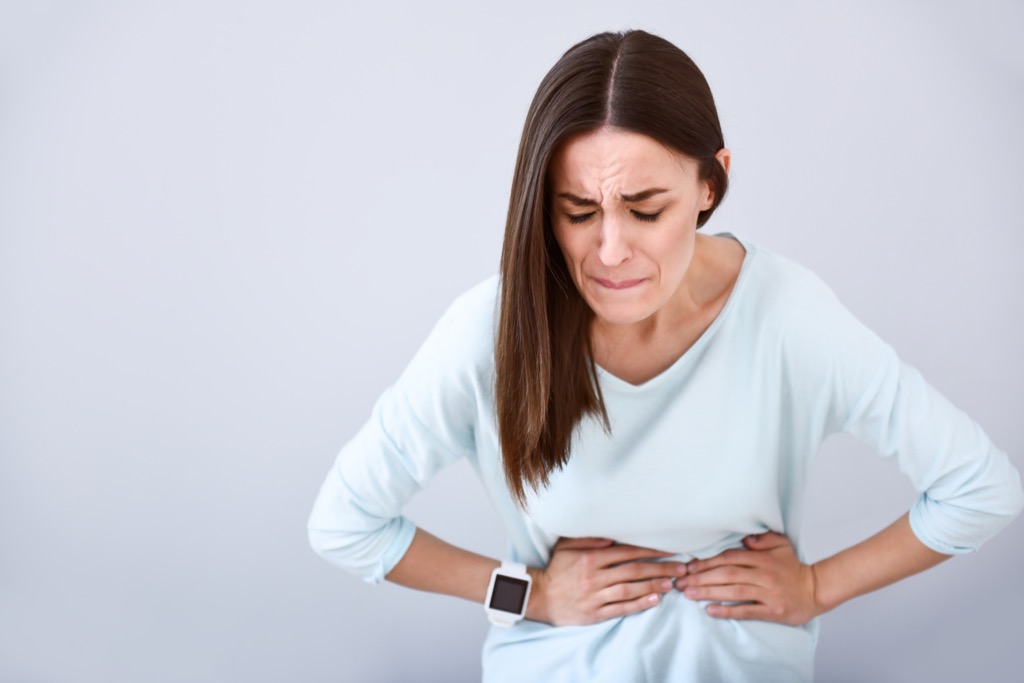
As we hurtle towards middle age, the possibility of indigestion, constipation, diverticulitis, and ulcers increase. A slew of age-related factors, including the medications you take and a more sedentary lifestyle can wreak havoc on healthy digestion. Your best bet to avoid digestive problems is to drink plenty of water, stay active, load up on fiber, enjoy probiotics, and eat a variety of different colored fruits and vegetables. If your guts are still giving you a hard time, make sure you bring it up with your doctor.
24
Testosterone production drops off.

While women are dealing with their bone density being chipped away at a rate of 1 percent per year past 35, men have been seeing their testosterone drop off at the same rate since age 30. As you probably know, testosterone is a powerful hormone in both genders, though men have much more of it. Testosterone helps to control sex drive, promote muscle mass, increase energy, and influence behavior. Feeling like half the man you used to be? According to Mayo Clinic, the best way to diagnose low testosterone is to visit your doctor for a blood test.
25
You see a decrease in muscle mass.

This one goes hand in hand with the decrease in testosterone mentioned above. As we age, the ratio of lean mass to fat in our bodies changes which has all kinds of mostly negative knock on effects throughout the body. You can however, still build muscle at 40 and stop that trend in its tracks and even reverse it. Eat plenty of high quality protein from organic sources and add more resistance training to your workout routine.
26
Your privates get baggier.
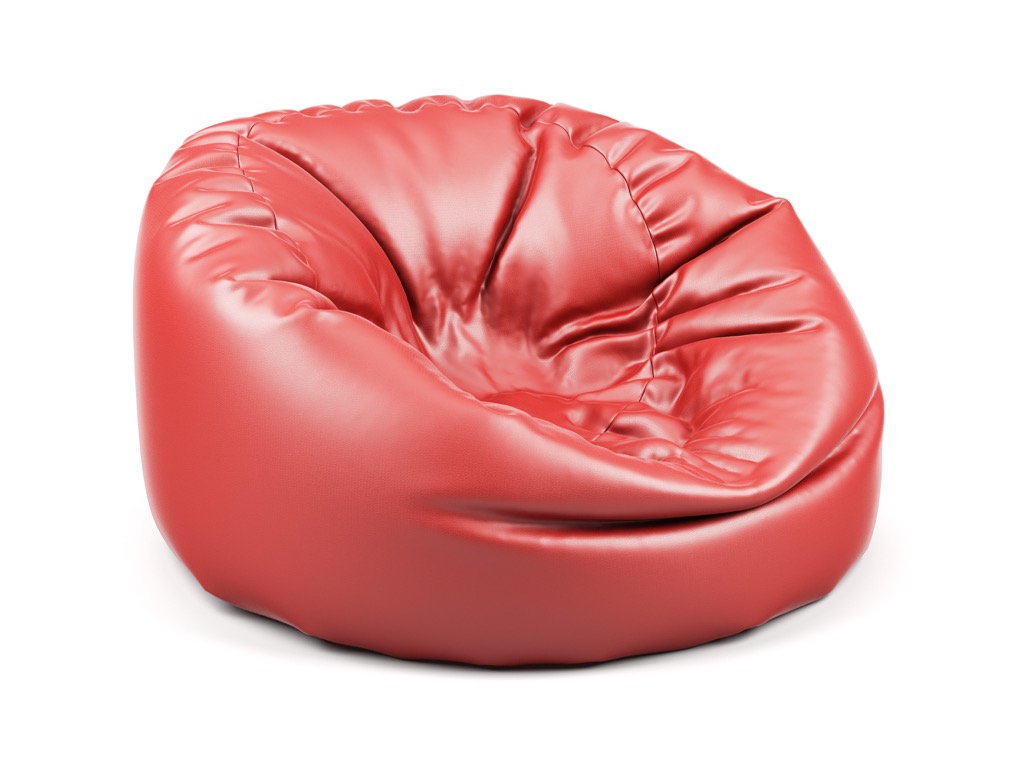
The cremaster and dartos muscles are responsible for raising and lowering the male scrotum—as well as cinching it in and letting it out. Suffice it to say, an age-related reduction in muscle mass means the muscles around your testicles aren’t quite as robust as they once were.
27
You sweat less.
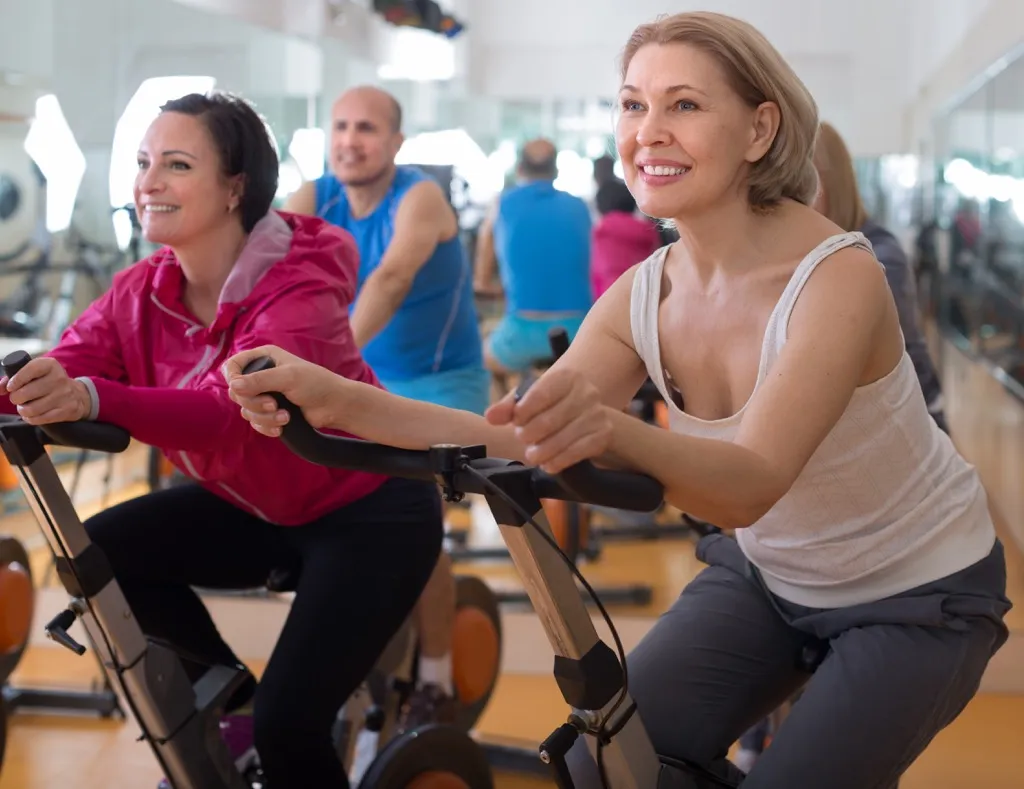
As we age, our sweat (eccrine) glands shrink and become less sensitive. A study in the Journal of Applied Physiology found that women approaching middle age sweated less than their younger counterparts. They attributed this to “a diminished response of the sweat glands to central and/or peripheral stimuli” and “an age-related structural alteration in the eccrine glands or surrounding skin cells.”
28
UTI’s become more common for women.
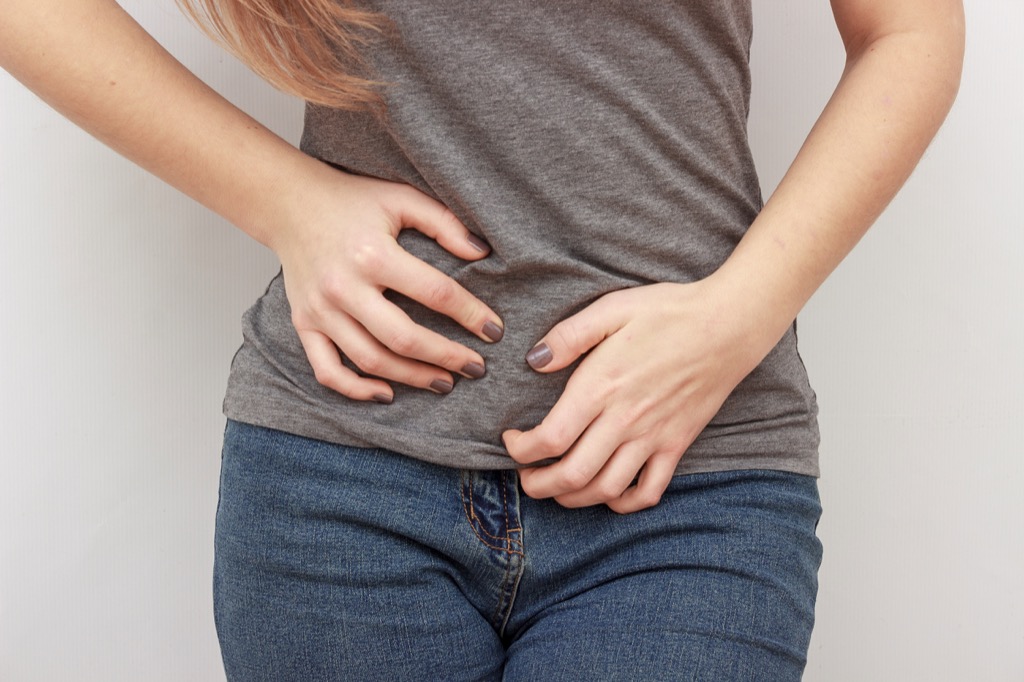
Estrogen appears to play a protective role against the bacteria that lead to UTIs and, at 40, your body is producing less of it. A low dose topical estrogen cream may help, but recurrent UTI’s are definitely worth discussing with your doctor.
29
You experience hearing loss.
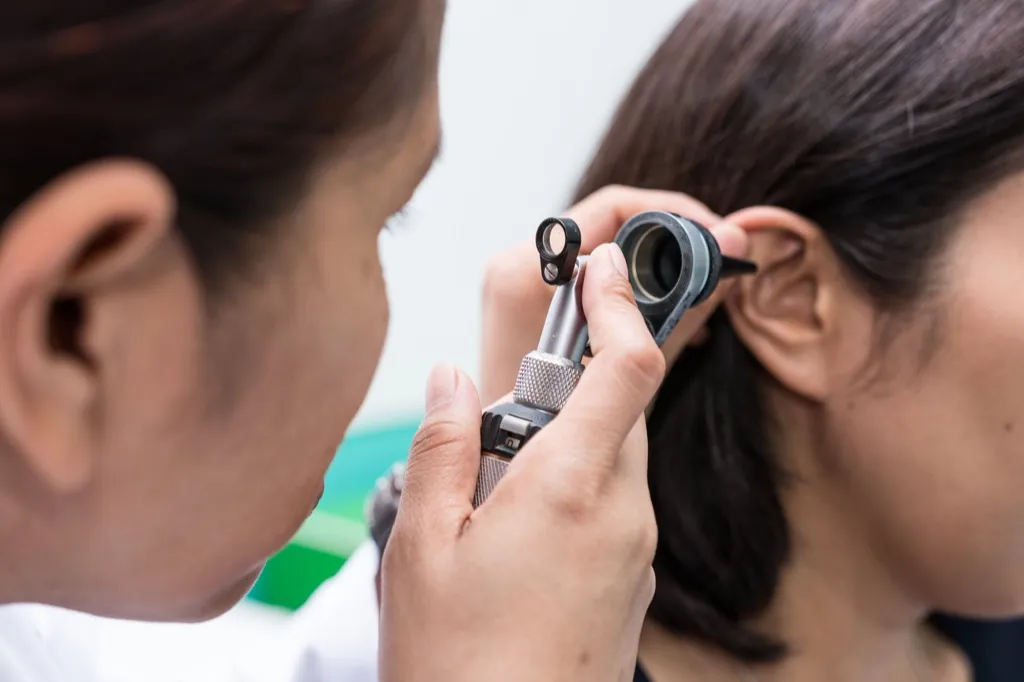
As we get to 40, our eardrum and inner ear change. As you might expect, this affects your hearing, and, since your inner ear controls your balance, you may become a little less coordinated, too.
30
You leak a little.
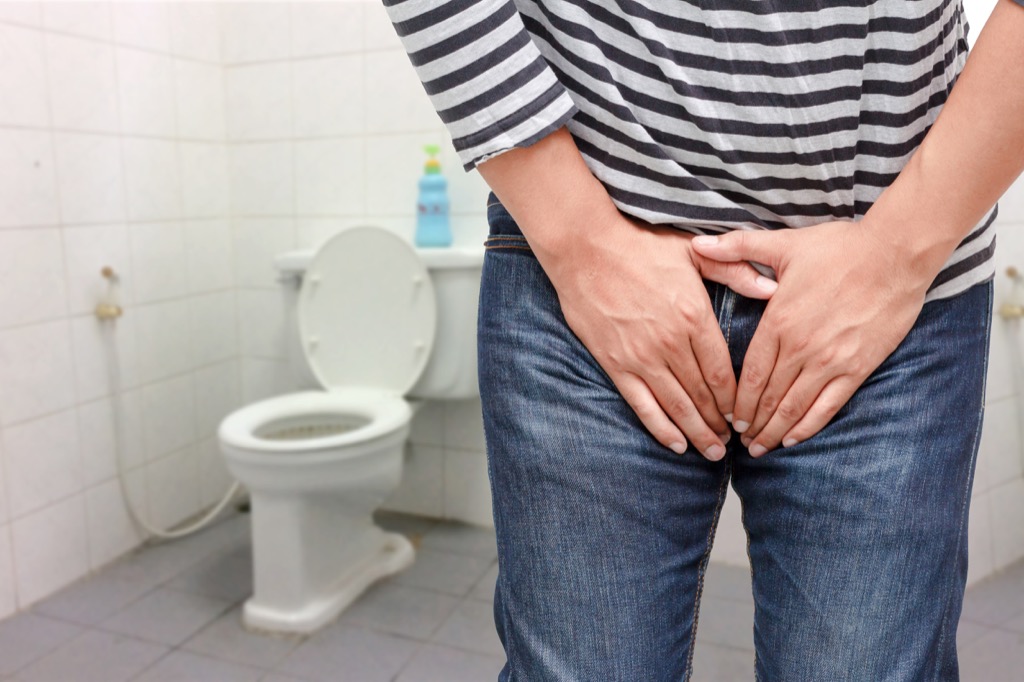
Perimenopause means a reduction in the amount of estrogen you produce. With less estrogen in your system, the muscles that support the urethra get weaker, leaving you more vulnerable to leaks. There are several things you can do to prevent yourself from unexpectedly tinkling. These include: avoiding food and drink that tend to trigger your leaks, losing some weight to reduce pressure on your bladder, and busting out sets of kegels. If none of the these strategies help, your doctor may be able to suggest medical devices (like a pessary) or medical procedures (such as injecting Botox into your bladder) to address the problem.
31
You experience sleep disruption more often.

You may have slept like a log through your 20s and 30s, but by 40, men and women are more likely to experience disruptions to their sleep. Various studies have shown that increases in the time it takes to fall asleep (sleep latency), an overall decline in REM sleep, and an increase in sleep fragmentation (waking up during the night) all happen with greater frequency when we get past forty. To combat the specter of less than stellar sleep, check out 10 Tips For Your Best Sleep Ever.
32
You get more distracted.

As a person gets older, their ability to ignore distractions gets worse, according to research by psychologists at the the University of Toronto.
33
It’s harder to get pregnant.
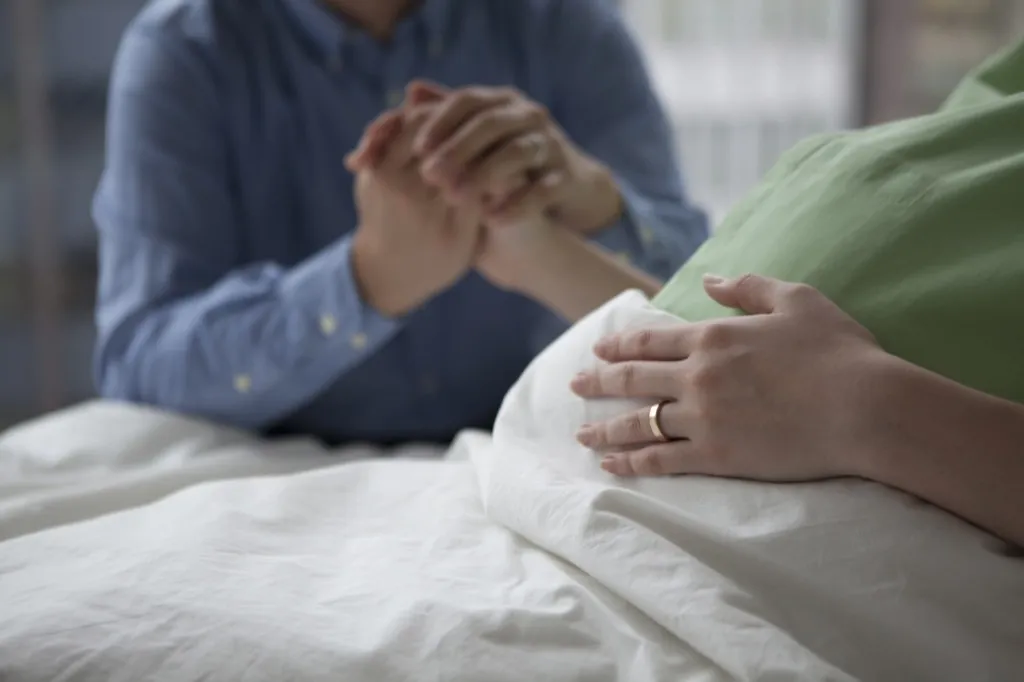
At 40, a woman’s chance of conceiving within a year is about 40 to 50 percent. Compare this with a woman in her mid-30s, 75 percent chance. This is largely due to the fact that, at age 40, women are getting towards the end of their egg supply.
34
But your libido may increase.

In a study of 827 women, psychologist David Buss found those around 40 are more interested in sex. Buss is an evolutionary psychologist and he thinks that this uptick in female libido could be a biological tactic to increase the chances of procreation.
He proposes that as women produce fewer eggs, their bodies are wired to be more sexually aroused to boost the an egg’s probability of being fertilized.
35
Male fertility starts to decline, too.

Dudes are usually around 40 when sperm quality decreases. This means it takes longer for their partners to conceive and when they do, there’s an increased risk of miscarriage.
36
Your brain changes.

One of the ways your body changes after 40 is that the female body producing less estrogen during perimenopause is changes in brain chemistry and function. It can lead to forgetfulness because the brain has a harder time organizing your thoughts in way that’s easy for you to recall. The good news is that eventually the brain adapts to lower of estrogen levels and compensates.
37
You become lactose intolerant.

One of the countless cool things the body does is help your small intestine digest lactose—a disaccharide sugar composed of galactose and glucose that is found in milk—is by producing an enzyme called lactase. As we age, the levels of lactase lower, and the lactose you ingest can hit your colon in a less digested state and the results… well, they’re not pretty. (Hint: they include everything from gas to bloating.)
If you think you’re developing an intolerance to dairy, try taking probiotics and experimenting with other milk sources like goat, almond, rice or cashew milk. You can also take digestive enzymes to help.
38
Scaly rough patches of skin can appear.
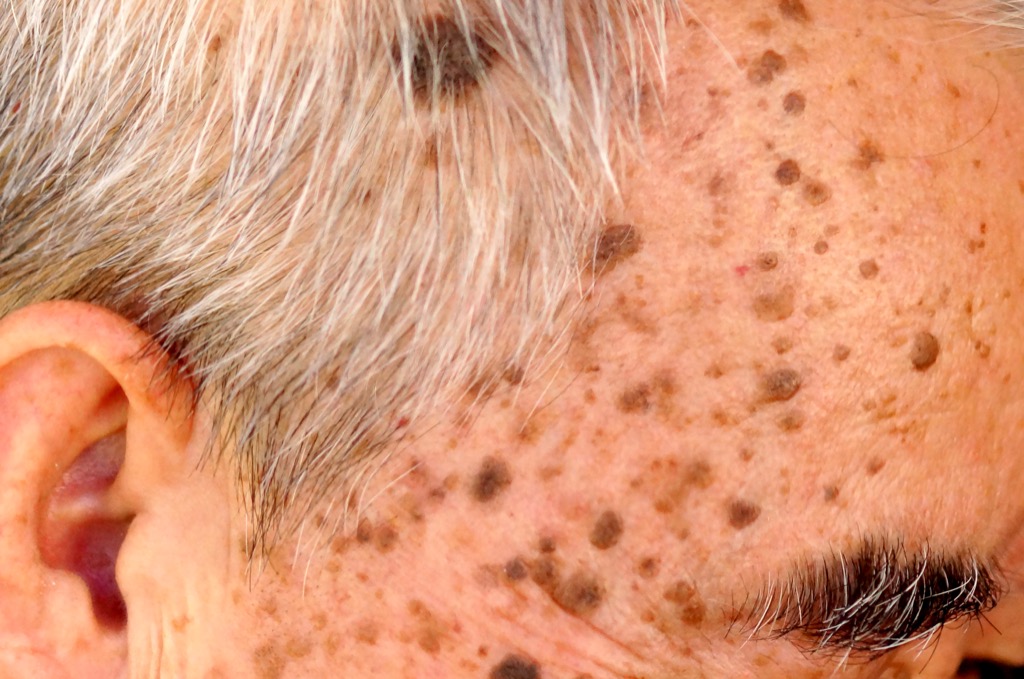
An actinic keratosis (also known as a solar keratosis) is a rough, scaly patch of sun-exposed areas such as the head and face. It’s is the most common skin condition caused by sun damage—the result of skin being damaged by the sun over many years. They are more common in men, mainly because men are more likely to have outdoor occupations but they aren’t usually dangerous and only pose a small risk of turning into cancer.
39
You experience changes in vision.

At 40, your peepers may need a little help reading small print, deciphering menus in candlelit restaurants, or simply feel dryer than you’ve grown accustomed to. Now that you’re at the age when all this and more can happen, it’s more important than ever to go for regular eye exams. In between them, protect your eyes from sun damage with UV protection sunglasses and a healthy diet. Research suggests lycopene, the pigment that gives tomatoes their red color, may reduce your risk of macular degeneration and cataracts later in life.
40
Your risk for bad things goes up.

After age 40, regular checkups and testing is crucial for preventing heart disease, stroke, high blood pressure, cancer, and a host of other ills that begin to pose a higher risk.
Yes, we’re going to tell you to eat better, sleep well, reduce stress, and exercise more, but we’re also going to tell you to see your doctor more often and seek preventative care. A 2007 study published in the Scandinavian Journal of Public Health followed 2,000 30- to 49-year olds over a period of 15 years. The researchers found that those who sought regularly preventative care were experiencing a “significantly greater” lifespan than those who didn’t. And once you’ve made it through your 40s, it’ll be time to read the 50 Ways to Look Younger in Your 50s!
For more advice on living your best life, follow us on Facebook and sign up for our newsletter now!